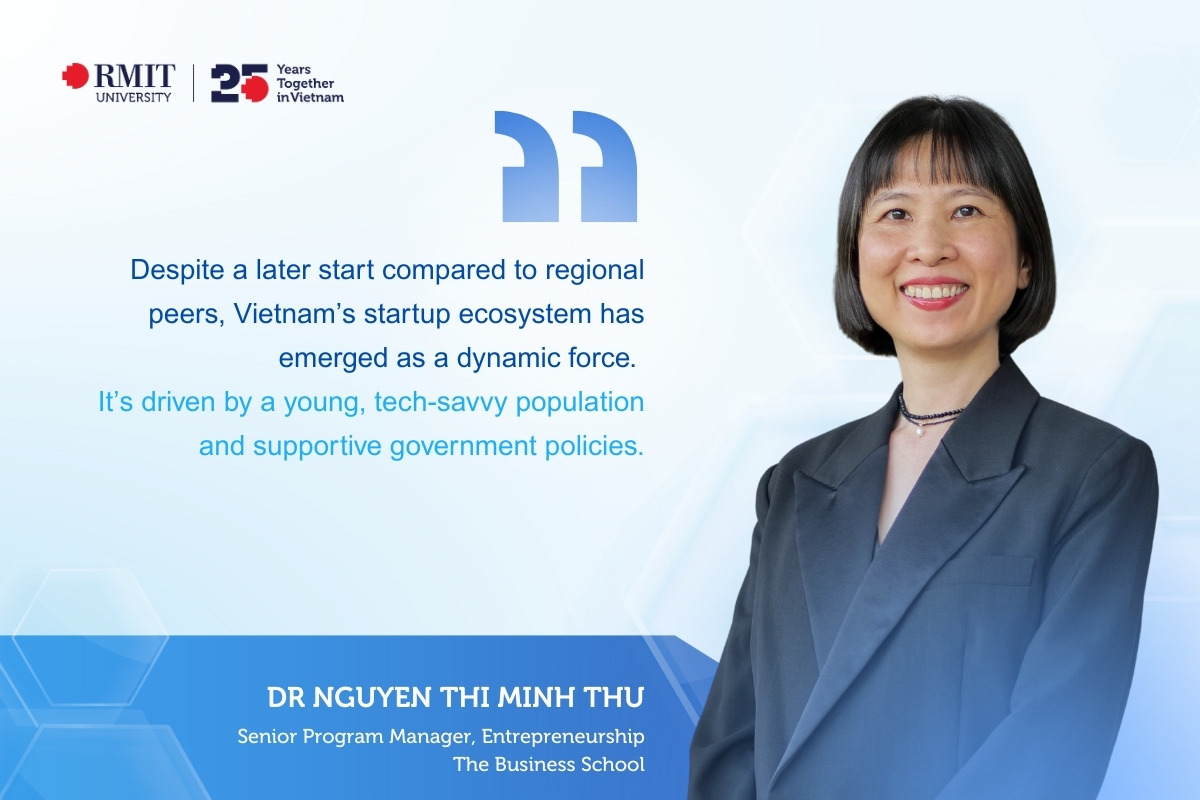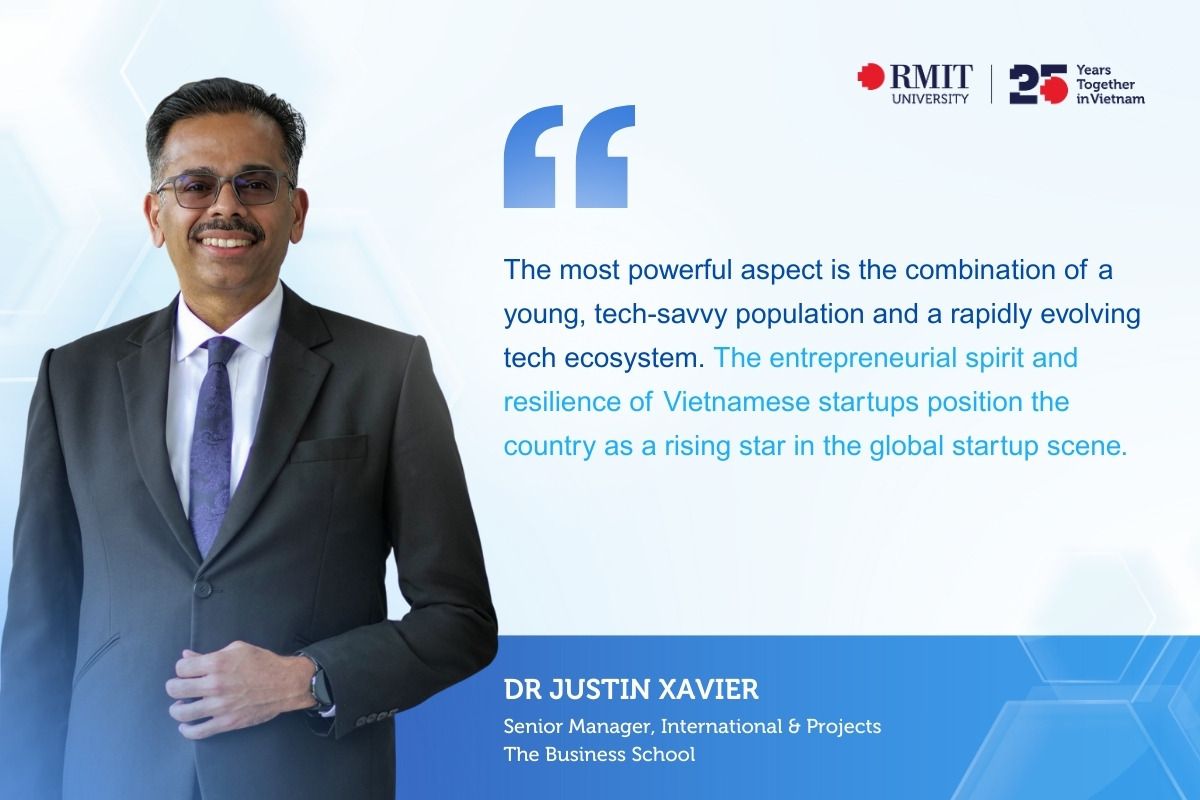Dr Thu anticipates a future where the private sector becomes the backbone of Vietnam’s economy, with startups leading the way. This aligns with the Politburo’s Resolution No. 68 announced in May 2025, which envisions the private sector contributing over 60 per cent of Vietnam’s GDP by 2045.
“By 2050, if we could see private conglomerates rival regional giants, driving projects like high-speed rail or digital infrastructure, and integrating deeply into global supply chains, that would be a transformative leap. It’s the promise of a self-reliant, dynamic Vietnam built on internal strength rather than external reliance,” Dr Thu said.
Building the right conditions for growth
To make this future possible, structural changes are needed. “Vietnam must strengthen intellectual property laws to protect startup innovation and attract venture capital,” said Dr Thu. “Export incentives and trade support can help local startups integrate into global supply chains.”
Building a stronger ecosystem is also critical. “More access to seed funding, mentorship and incubators is needed to grow future unicorns,” she said. “We also need entrepreneurship embedded in education, and more collaboration between the ecosystem stakeholders, especially academia and industry.”
At RMIT, these ideas are already being put into practice. Through study programs focused on entrepreneurship and innovation, the University is helping students build essential skills and an entrepreneurial mindset.
In 2024, RMIT launched SPARK Hub, offering its students, alumni and the wider community a supportive ecosystem to grow and transform their startup ideas into reality.







